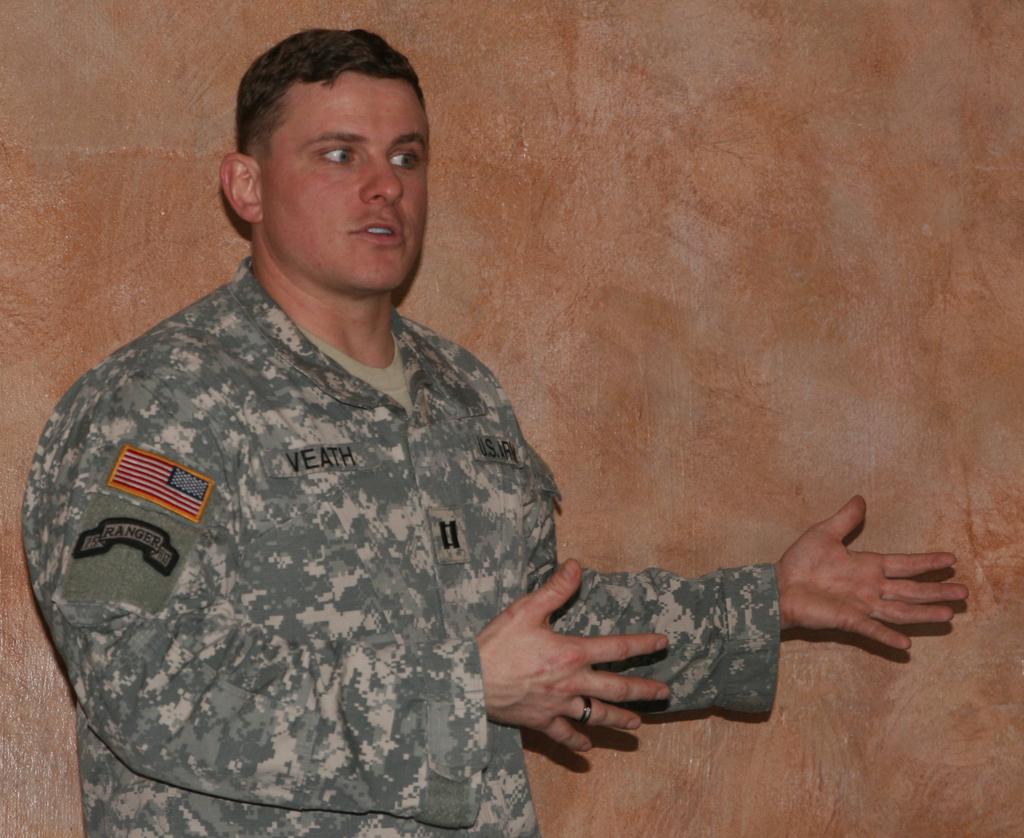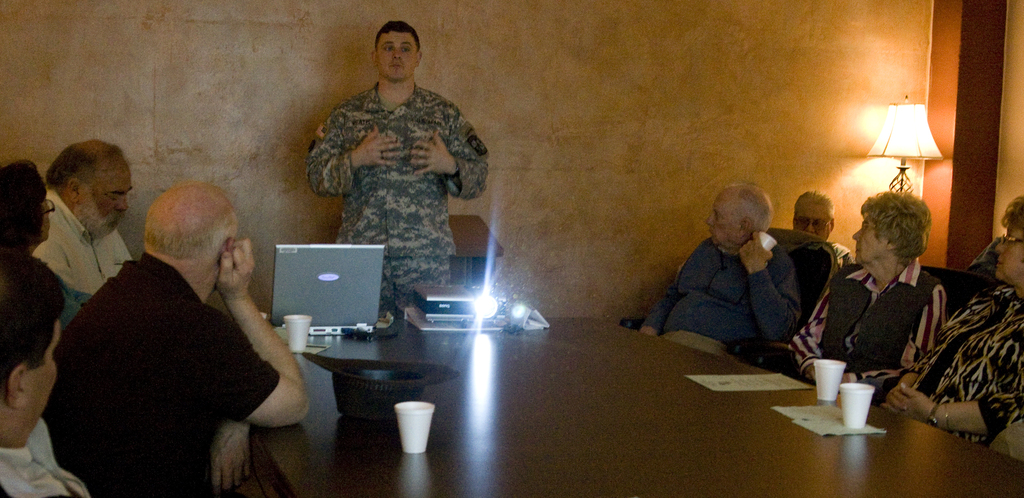Army officer from Chadron tells about war experiences

U.S. Army Capt. Logan Veath of Chadron gave a first-hand account of the successes and setbacks against insurgencies in Iraq and Afghanistan during a presentation at Chadron State College on Tuesday night.
Veath, who was deployed to the two countries six times in six years and earned a Silver Star for valor, was this spring’s third speaker in CSC’s Dorset Graves Lecture Series at the Reta King Library. Veath spoke and showed photographs to an inquisitive audience for about two hours.
Much of Veath’s presentation informed of efforts to win the hearts and minds of the local populace of the war zones. Among the objectives Veath told about were securing the populace, promoting commerce, establishing local political institutions, instilling democracy and winning the information war. He said one of the keys to the United States making progress in Iraq is improving factors most important to daily living, including sanitation, public works, health care and schools.
One of Veath’s many duties was to train Iraqis to fight against the insurgency and instill leadership within their troops. A CNN video clip that was shown during the presentation featured Veath leading a group of reluctant Iraqi soldiers into battle at Sadr City.
Veath also spoke about the challenge of bringing down the insurgencies’ incredibly complicated network, and the similarities and differences of Iraq and Afghanistan. He said the framework of the insurgency is interconnected in such a way that it can’t be defeated by “cutting off its head.”
Despite the fact that both Iraq and Afghanistan pose monumental challenges, he said they are two extremely different places. The rugged terrain and agrarian lifestyle of Afghanistan is much different than Iraq, which has large population centers and fewer physical boundaries.
Veath described 85 percent of Iraq population as good people who just want to make a living, and 5 percent, are “darn evil,” he said. The remaining 10 percent will side with “whoever’s in power.”
Veath, 32, was commissioned by the University of Nebraska Reserve Officers Training Corps program in 2001. Soon after, he entered Ranger school and said he welcomed the opportunity to test his mettle in battle.
“I was shipped off to the 101st and I was involved with the initial invasion of Afghanistan and the initial invasion of Iraq,” he said.
A short tour in Afghanistan as an executive officer with the 75th Ranger regiment followed. He also served as general’s aide with the Joint Special Operations Command.
His most recent tour in Iraq was as company commander of the 25th Infantry Division for the 114th Infantry Regiment, “the Golden Dragons.” He recently “turned in his gear” to study dentistry. He is enrolled at CSC preparing for dental school, and has hopes to re-entering the military someday after completing his schooling.
Veath, the son of CSC vice president for academic affairs Lois Veath and the late David Veath, was introduced to the audience as a hero, which he said was humbling.
“You are who you are first and you do what you do second,” he said.
The next speaker of the Graves Lecture series will be Dr. James Margetts, CSC music professor on Tuesday, March 30. His presentation, “Echoes of Venice,” will begin at 7 p.m. in room 108 of the King Library and is open to the public free of charge.
Category: Campus News

